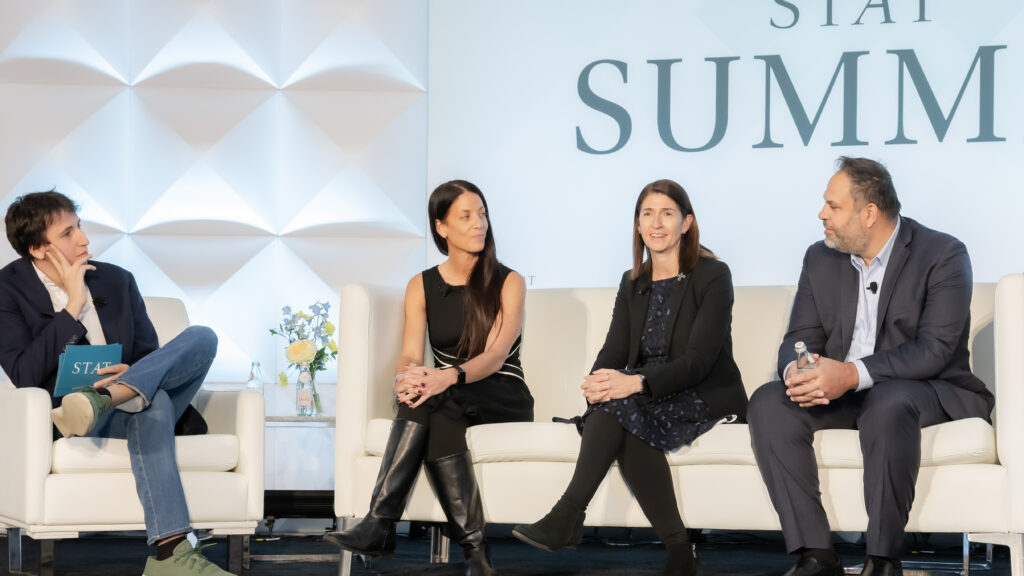Ten years ago, neither Allyson Berent, Terry Pirovolakis nor Michelle Werner expected to be founders of biotech companies. But they’ve all done so with the goal of helping to treat their children’s rare diseases.
The three parents took the stage at the 2024 STAT Summit to talk about the challenges of trying to find treatments for rare diseases — from securing funding to translating research in animals to humans to commercial barriers.
advertisement
“What we realized was that if we didn’t continue to do this ourselves, nobody was going to do it, because the priorities of parents and patients will never change. We have to wake up every morning and go to bed every night and promise that little girl that I’m going to make her life better,” said Allyson Berent, chief scientific officer at the Foundation for Angelman Syndrome Therapeutics. Angelman syndrome is a neurogenetic disorder that occurs in 1 in 15,000 births.
“Pharmaceutical companies may get a new CEO, or may have a new board, or may have new priorities of a direction they want to go in that makes financial sense, but that doesn’t always match with the priorities of parents.”
Because rare diseases by definition affect a relatively small number of patients, it can be difficult for entrepreneurs like these parents to get financial backing for their companies — especially at a time when funding for biotech companies has gotten harder to come by. In May 2022, when biotech stocks took a downturn, Berent said, funding for Angelman syndrome therapies took a hit.
advertisement
Panelists also cited regulatory issues in taking treatments to market. Pirovlakis said that his company, Elpida Therapeutics, has a lengthy list of 40 groups with potential therapeutics for various diseases that have reached out, but noted the difficulty of gaining federal approval. “Some of them have drugs made, [investigational new drug applications] filed and they’re sitting in a freezer … Our goal is to save as many kids as we humanly can, and it’s a tragedy to see these programs sitting in a freezer,” he said.
The three parents have had some success with their work. Pirovolakis was able to treat his child within three years of their diagnosis with a rare neurodegenerative condition called SPG50, and has helped several others with similar conditions. And Werner is hoping her company, Alltrna, which is researching transfer RNA — a small molecule that helps make proteins — will help tackle many diseases, solving the issue of scale. “This may actually be one of the few ways that we can simplify the problem of thousands of different genetic diseases into fewer universal diseases and to treat them with a single molecule,” she said.
Werner also said she hopes for changes to the regulatory process in order to speed up treatment to save people like her son, who has Duchenne muscular dystrophy, rather than wait too long for further evidence of a treatment’s efficacy.
“My son will not be walking within the next year or two. He will not be able to breathe on his own within the next five to 10 years, and he will not make it into his 30s if we don’t do anything about this. We are in a race against time,” said Werner, who also serves as CEO-Partner at the venture capital firm Flagship Pioneering. “We are willing, as parents, to take on more risk than what I believe the regulators are giving us credit for, and I think we need to start acting and behaving in that way where we can accommodate some of that risk into the system a bit more.”

